

By his things will you know him
By Cory Doctorow

Introduction
In 2013 at Institute for the Future, the non-profit forecasting thinktank where I'm a researcher, we explored what we're calling the Coming Age of Networked Matter. Over the next few decades, a confluence of breakthroughs in physics, engineering, biology, computation, and complexity science will give us new lenses to observe the wondrous interconnections surrounding us and within us. In the future we’re moving toward, we won’t only observe complex systems, we’ll also modify and even create them in vivo and with purpose. It will be an era of huge possibility, daunting pitfalls, and high weirdness. To help make this future tangible, we commissioned some of our favorite writers of speculative fiction -- Cory Doctorow, Rudy Rucker, Ramez Naam, Bruce Sterling, Madeline Ashby, and Warren Ellis -- to write short stories tied to our research theme. The anthology, titled An Aura of Familiarity: Visions from the Coming Age of Networked Matter, contains six stories all released under a Creative Commons license. The accompanying art is by Daniel Martin Diaz.
We are thrilled to premier these stories on Boing Boing. At IFTF's site, you can watch an animated author interview and find out how to win a limited edition print copy of the book and a t-shirt. At the beginning of August, the entire book will be available as a free PDF at IFTF.org. -- David Pescovitz
I thought that Mr. Purnell was a little young to be a funeral director, but he had the look down cold. In the instant between his warm, dry handshake and my taking my hand back to remove my winter hat and stuff it into my pocket, he assumed the look, a kind of concerned, knowing sympathy that suggested he’d weathered plenty of grief in his day and he was there to help you get through your own. He gestured me onto an oatmeal-colored wool sofa and pulled his wheeled office chair around to face me. I hung my coat over the sofa arm and sat down and crossed and uncrossed my legs.
“So, it’s like I said in the email—” was as far as I got and then I stopped. I felt the tears prick at the back of my eyes. I swallowed hard. I rubbed at my stubble, squeezed my eyes shut. Opened them.
If he’d said anything, it would have been the wrong thing. But he just gave me the most minute of nods—somehow he knew how to embed sympathy in a tiny nod; he was some kind of prodigy of grief-appropriate body language—and waited while the lump in my throat sank back down into my churning guts.
“Uh. Like I said. We knew Dad was sick but not how sick. None of us had much to do with him for, uh, a while.” Fifteen years, at least. Dad did his thing, we did ours. That’s how we all wanted it. But why did my chest feel like it was being crushed by a slow, relentless weight? “And it turns out he didn’t leave a will.” Thanks, Dad. How long, how many years, did you have after you got your diagnosis? How many years to do one tiny thing to make the world of the living a simpler place for your survivors?
Selfish, selfish prick.
Purnell let the silence linger. He was good. He let the precisely correct interval go past before he said, “And you say there is insurance?”
“Funeral insurance,” I said. “Got it with his severance from Compaq. I don’t think he even knew about it, but one of his buddies emailed me when the news hit the web, told me where to look. I don’t know what his policy number was or anything—”
“We can find that out,” Purnell said. “That’s the kind of thing we’re good at.”
“Can I ask you something?” “Of course.”
“Why don’t you have a desk?” He shrugged, tapped the tablet he’d smoothed out across his lap. “I feel like a desk just separates me from my clients.” He gestured around his office, the bracketless shelves in somber wood bearing a few slim books about mourning, some abstract sculptures carved from dark stone or pale, bony driftwood. “I don’t need it. It’s just a relic of the paper era. I’d much rather sit right here and talk with you, face to face, figure out how I can help you.”
* * *
I’d googled him, of course. I’d googled the whole process. The first thing you learn when you google funeral homes is that the whole thing is a ripoff. From the coffin—the “casket,” which is like a coffin but more expensive—to the crematorium to the wreath to the hearse to the awful online memorial site with sappy music—all a scam, from stem to stern. It’s a perfect storm of graft: a bereaved family, not thinking right; a purchase you rarely have to make; a confusion of regulations and expectations. Add them all up and you’re going to be mourning your wallet along with your dear departed.
Purnell gets good google. They say he’s honest, modern, and smart. They say he’s young, and that’s a positive, because it makes him a kind of digital death native, and that’s just what we need, my sister and I, as we get ready to bury Herbert Pink: father, nerd, and lifelong pain in the ass. The man I loved with all my heart until I was 15 years old, whereupon he left our mother, left our family, and left our lives. After that, I mostly hated him. You should know: hate is not the opposite of love.
* * *
I was suddenly mad at this young, modern, honest, smart undertaker. I mean, funeral director. “Look,” I said. “I didn’t really even know my father, hadn’t seen him in years. I don’t need ‘help,’ I just need to get him in the ground. With a minimum of hand holding and fussing.”
He didn’t flinch, even though there’d been no call for that kind of outburst. “Bruce,” he said, “I can do that. If you’re in a hurry, we can probably even do it by tomorrow. It looks like your father’s insurance would take you through the whole process. We’d even pay the deductible for you.” He paused to let that sink in. “But Bruce, I do think I can help you. You’re your father’s executor, and he died intestate. That means a long, slow probate.”
“So what? I don’t care about any inheritance. My dad wasn’t a rich man, you know.”
"I’m sorry, that’s not what I meant to imply. Your father died intestate, and there’s going to be taxes to pay, bills to settle. You’re going to have to value his estate, produce an inventory, possibly sell off his effects to cover the expenses. Sometimes this can take years.”
He let that sink in. “All right,” I said, “that’s not something I’d thought of. I don’t really want to spend a month inventorying my father’s cutlery and underwear drawer.”
He smiled. “I don’t suppose a court would expect you to get into that level of detail. But the thing is, there’s better ways to do this sort of thing. You think that I’m young for a funeral director.”
The non sequitur caught me off guard. “I, uh, I suppose you’re old enough—”
“I am young for this job. But you know what Douglas Adams said: everything invented before you were born is normal and ordinary and is just a natural part of the way the world works. Anything after your fifteenth birthday is new and exciting and revolutionary. Anything invented after you’re thirty-five is against the natural order of things. The world has changed a lot since you were born, and changed even more since I was born, and I have to tell you, I think that makes my age an asset, not a liability.
“And not in some nebulous, airy-fairy way. Specifically, the fact that I’m 27 years old is how I got onto the beta-test for this.” He handed me his tablet. I smoothed it out and looked at it. It took me a minute to get what I was seeing. At first, I thought I was looking through a live camera feed from some hidden webcam in his office, but then I noticed I wasn’t in the picture. Then I thought I might be seeing a video loop. But after a few experimental prods, I understood that this was a zoomable panoramic image of the room in which I was sitting.
“Pick up one of the sculptures,” he said. I zoom-dragged to one of them, a kind of mountainscape made of something black and nonreflective. It had pleasing proportions, and a play of textures I quite admired. I double-tapped it and it filled the screen, allowing me to rotate it, zoom in on it. Playing along, I zoomed way up until it became a mash of pixellated JPEG noise, then back out again.
“Now try the white one,” he said, pointing at a kind of mathematical solid that suggested some kind of beautiful calculus, behind him and to the left. Zooming to it, I discovered that I could go to infinite depth on it, without any jaggies or artifacts appearing. “It’s so smooth because there’s a model of it on Thingiverse, so the sim just pulled in the vectors describing it and substituted a rendering of them for the bitmap. Same with the shelves. They’re Ikea, and all Ikea furniture has publicly disclosed dimensions, so they’re all vector based.” I saw now that it was true: the shelves had a glossy perfection that the rest of the room lacked.
“Try the books,” he said. I did. A copy of The Egyptian Book of the Dead opened at a touch and revealed its pages to me. “Book-search scans,” he said.
I zoomed around some more. The camel-colored coat hanging on the hook on the back of the door opened itself and revealed its lining. My pinky nail brushed an icon and I found myself looking at a ghostly line-art version of the room, at a set of old-fashioned metal keys in the coat’s pocket, and as I zoomed out, I saw that I was able to see into the walls—the wiring, the plumbing, the 2́4 studs.
“Teraherz radar,” he said, and took the tablet back from me. “There’s more to see, and it gets better all the time. There were a couple of books it didn’t recognize at first, but someone must have hooked them into the database, because now they move. That’s the really interesting thing, the way this improves continuously—”
“Sorry,” I said. “What are you showing me?”
“Oh,” he said. “Right. Got ahead of myself. The system’s called Infinite Space and it comes from a start-up here in Virginia. They’re a DHS spinout, started out with crime-scene forensics and realized they had something bigger here. Just run some scanners around the room and give it a couple of days to do the hard work. If you want more detail, just unpack and repack the drawers and boxes in front of it—it’ll tell you which ones have the smallest proportion of identifiable interior objects. You won’t need to inventory the cutlery; that shows up very well on a teraherz scan. The underwear drawer is a different matter.”
I sat there for a moment, thinking about my dad. I hadn’t been to his place in years. The docs had shown me the paramedics’ report, and they’d called it “crowded,” which either meant that they were very polite or my dad had gotten about a million times neater since I’d last visited him. I’d been twenty before I heard the term “hoarder,” but it had made instant sense to me.
Purnell was waiting patiently for me, like a computer spinning a watch cursor while the user was woolgathering. When he saw he had my attention, he tipped his head minutely, inviting me to ask any questions. When I didn’t, he said, “You know the saying, ‘You can’t libel the dead’? You can’t invade the dead’s privacy, either. Using this kind of technology on a living human’s home would be a gross invasion of privacy. But if you use it in the home of someone who’s died alone, it just improves a process that was bound to take place in any event. Working with Infinite Space, you can even use the inventory as a checklist, value all assets using current eBay blue-book prices, divide them algorithmically or manually, even turn it into a packing and shipping manifest you can give to movers, telling them what you want sent where. It’s like full-text search for a house.”
I closed my eyes for a moment. “Do you know anything about my father?”
For the first time, his expression betrayed some distress. “A little,” he said. “When you showed up in my calendar, it automatically sent me a copy of the coroner’s report. I could have googled further, but . . . ” He smiled. “You can’t invade the privacy of the dead, but there’s always the privacy of the living. I thought I’d leave that up to you.”
“My father kept things. I mean, he didn’t like to throw things away. Nothing.” I looked into his eyes as I said these words. I’d said them before, to explain my spotless desk, my habit of opening the mail over a garbage can and throwing anything not urgent directly into the recycling pile, my weekly stop at the thrift-store donation box with all the things I’d tossed into a shopping bag on the back of the bedroom door. Most people nodded like they understood. A smaller number winced a little, indicating that they had an idea of what I was talking about.
A tiny minority did what Purnell did next: looked back into my eyes for a moment, then said, “I’m sorry.”
“Yeah,” I said. “He was always threatening to start an antique shop, or list his stuff on eBay. Once he even signed a lease, but he never bought a cash register. Never unlocked the front door, near as I could tell. But he was always telling me that his things were valuable, to the right person.” I swallowed, feeling an echo of the old anger I’d suppressed every time he’d played that loop for me. “But if there was anything worth anything in that pile, well, I don’t know how I’d find it amid all the junk.”
“Bruce, you’re not the first person to find himself in this situation. Dealing with an estate is hard at the best of times, and times like this, I’ve had people tell me they just wanted to torch the place, or bulldoze it.”
“Both of those sound like good ideas, but I have a feeling you don’t offer those particular services.”
He smiled a little funeral director’s smile, but it went all the way to his eyes. “No,” he said. “I don’t. But, huh.” He stopped himself. “This sounds a bit weird, but I’ve been looking forward to a situation like this. It was what I thought of immediately when I first saw Infinite Space demoed. This is literally the best test case I can imagine for this.”
I wish I was the kind of guy who didn’t cry when his father, estranged for decades, died alone and mad in a cluttered burial chamber of his own lunatic design. But I’d cried pretty steadily since I’d gotten the news. I could tell that I was about to cry now. There were Kleenex boxes everywhere. I picked one up and plucked out a tissue. Purnell didn’t look away but managed to back off slightly just by altering his posture. It was enough to give me the privacy to weep for a moment. The tears felt good this time, like they had somewhere to go. Not the choked cries I’d found myself loosing since I’d first gotten the news.
“Yeah,” I said. “Yeah, I think it probably is.”
* * *
I’d expected Roomba-style rolling robots and wondered how they’d get around the narrow aisles between the drifts and piles of things in Dad’s house. There were a few of those, clever ones, the size of my old Hot Wheels cars, and six-wheeled so they could drive in any direction. But the heavy lifting was done by the quadrotors, each the size of a dragonfly, swarming and swooping and flocking with an eerie, dopplered whine that bounced around in the piles of junk. Bigger rotors went around and picked up the ground-effect vehicles, giving them lifts up and down the stairs. As they worked, their data streamed back into a panorama on Purnell’s laptop. We sat on the porch steps and watched the image flesh out. The renderer was working from bitmaps and dead-reckoning telemetry to build its model, and it quivered like a funhouse as it continuously refined its guesses about the dimensions. At one point, the living room sofa appeared to pierce the wall behind us, the sofa itself rendered as a kind of eye-wateringly impossible Escherling that was thick and thin simultaneously. The whole region glowed pink.
“See,” Purnell said. “It knows that there’s something wrong there. There’s going to be a ton of quads tasked to it any second now.” And we heard them buzzing through the wall as they conferred with one another and corrected the software’s best guesses. Flicking through the panoramas, we saw other pink areas, saw them disappear as the bad geometries were replaced with sensible ones in a series of eyeblink corrections. There was something comforting about watching all the detail fill in, especially when the texturemaps appeared in another eyeblink, skinning the wireframes and giving the whole thing the feeling of an architectural rendering. The bitmaps had their own problems: improbable corners, warped-mirror distortions, but I could see that the software was self-aware enough to figure out its own defects, painting them with a pink glow that faded as the approximations were fined down with exact images from the missing angles.
All this time, there’d been a subtle progress bar creeping in fits and starts across the bottom of the screen, just few pixels’ worth of glowing silverly light, and now it was nearly all the way. “You don’t have to do the next part,” he said. “If you’d rather wait out here—”
“I’ll do it,” I said. “It’s okay.”
“They gave us eight scanners. That’s more than we should need for a two-bedroom house. Two should do it. One, even, if you don’t mind moving it, but I thought—”
“It’s okay,” I said again. “I can do this.”
I shook my own tablet out and pinched it rigid, holding it before me like a treasure map as I walked through the front door.
The smell stopped me in my tracks. It had been teasing me all the morning on the porch, but that was the attenuated, diluted version. Now I was breathing in the full-strength perfume, the smell of all my fathers’ dens: damp paper, oxidizing metal, loose copper pennies, ancient cleaners vaporizing through the pores in their decaying bottles, musty cushions, expired bulk no-name cheerios, overloaded power strips, mouse turds, and the trapped flatulence of a thousand lonely days. Overlaid with it, a rotten meat smell.
My father had been dead for at least a week before they found him.
* * *
Infinite Space wanted teraherz scanners in several highly specific locations. Despite Purnell’s assurances, it turned out that we needed to reposition half a dozen of them, making for fourteen radar panoramas in all. I let him do the second placement and went back out onto the porch to watch the plumbing and structural beams and wiring ghost into place as the system made sense of the scans. I caught a brief, airport-scan flash of Purnell’s naked form, right down to his genitals, before the system recognized a human silhouette and edited it out of the map. The awkwardness was a welcome change from the cramped, panicked feeling that had begun the moment I’d stepped into Dad’s house.
The screen blinked and a cartoon chicken did a little ironic head tilt in the bottom left corner. It was my little sister, Hennie, who is much more emotionally balanced than me, hence her ability to choose a self-mocking little avatar. I tapped and then cupped the tablet up into a bowl shape to help it triangulate its sound on my ear. “Have you finished mapping the burial chamber, Indiana Bruce?” She’s five years younger than me, and Dad left when she was only ten, and somehow it never seemed to bother her. As far as she was concerned, her father died decades ago, and she’d never felt any need to visit or call the old man. She’d been horrified when she found out that I’d exchanged a semi-regular, semi-annual email with him.
I snuffled up the incipient snot and tears. “Funny. Yeah, it’s going fast. Mostly automatic. I’ll send it to you when it’s done.”
She shook her head. “Don’t bother. It’ll just give Marta ideas.” Marta, her five-year-old daughter, refused to part with so much as a single stuffed toy and had been distraught for months when they remodeled the kitchen, demanding that the old fridge be brought back. I never wanted to joke about heredity and mental illness, but Hennie was without scruple on this score and privately insisted that Marta was just going through some kind of essential post-toddler conservatism brought on by the change to kindergarten and the beginning of a new phase of life.
“It’s pretty amazing, actually. It’s weird, but I’m kind of looking forward to seeing the whole thing. There’s something about all that mess being tamed, turned into a spreadsheet—”
“Listen to yourself, Bruce. The opposite of compulsive mess isn’t compulsive neatness—it’s general indifference to stuff altogether. I don’t know that this is very healthy.”
I felt an irrational, overarching anger at this, which is usually a sign that she’s right. I battened it down. “Look, if we’re going to divide the estate, we’re going to have to inventory it, and—”
“Wait, what? Who said anything about dividing anything? Bruce, you can keep the money, give it to charity, flush it down the toilet, or spend it on lap dances for all I care. I don’t want it.”
“But half of it is yours—I mean, it could go into Marta’s college fund—”
“If Marta wants to go to college, she can sweat some good grades and apply for a scholarship. I don’t give a damn about university. It’s a big lie anyway—the return on investment just isn’t there.” Whenever Hennie starts talking like a stockbroker, I know she’s looking to change the subject. She can talk economics all day long, and will, if you poke her in a vulnerable spot.
“Okay, okay. I get it. Fine. I won’t talk about it with you if it bugs you. You don’t have to know about it.”
“Come on, Bruce, I don’t mean it that way. You’re my brother. You and Marta and Sweyn”—her husband—“are all the family I’ve got. I just don’t understand why you need to do this. It’s got me worried about you. You know that you had no duty to him, right? You don’t owe him anything.”
“This isn’t about him. It’s about me.” And you, I added to myself. Someday you’ll want to know about this, and you’ll be glad I did it. I didn’t say it, of course. That would have been a serious tactical mistake.
“Whatever you say, Bruce. Meantime, and for the record, Sweyn’s looked up the information for the intestacy trustee. Anytime you want, you can step away from this. They’ll liquidate his estate, put the proceeds into public-spirited projects. You can just step away anytime. Remember that.”
“I’ll remember. I know you want to help me out here, but seriously, this is something I need to do.”
“This is something you think you need to do, Bruce.”
Yeah,” I said. “If that makes you feel better, then I can go with that.”
* * *
I got the impression that Infinite Space was tremendously pleased to have hit on a beta tester who was really ready to put their stuff through its paces. A small army of turkers were bid into work, filling in descriptions and URLs for everything the software couldn’t recognize on its own. At first they’d been afraid that we’d have to go in and rearrange the piles so that the cameras could get a look at the stuff in the middle, but a surprising amount of it could be identified edge on. It turns out books aren’t the only thing with recognizable spines, assuming a big and smart enough database. The Infinites (yes, they called themselves that, and they generated a near-infinite volume of email and tweets and statuses for me, which I learned to skim quickly and delete even faster) were concerned at first that it wouldn’t work for my dad’s stuff because so much of their secret sauce was about inferences based on past experience. If the database had previously seen a thousand yoga mats next to folded towels, then the ambiguous thing on top of a yoga mat that might be a fitted sheet and might be a towel was probably a towel.
Dad’s teetering piles were a lot less predictable than that, but as it turned out, there was another way. Since they had the dimensions and structural properties for everything in the database, they were able to model how stable a pile would be if the towels were fitted sheets and vice-versa, and whittle down the ambiguities with physics. The piles were upright, therefore they were composed of things that would be stable if stacked one atop another. The code took very little time to implement and represented a huge improvement on the overall database performance.
“They’re getting their money’s worth out of you, Bruce,” Purcell told me, as we met in his office that week. He had my dad’s ashes, in a cardboard box. I looked at it and mentally sized it up for its regular dimensions, its predictable contents. They don’t put the whole corpseworth of ashes in those boxes. There’s no point. A good amount of ashes are approximately interchangeable with all the ashes, symbolically speaking. The ashes in that box would be of a normalized distribution and weight and composition. They could be predicted with enormous accuracy, just by looking at the box and being told what was inside it. Add a teraherz scan—just to be sure that the box wasn’t filled with lead fishing weights or cotton candy—and the certainty skyrockets.
I hefted the box. “You could have dinged the insurance for a fancy urn,” I said.
He shrugged. “It’s not how I do business. You don’t want a fancy urn. You’re going to scatter his remains. An urn would just be landfill, or worse, something you couldn’t bring yourself to throw away.”
“I can bring myself to throw anything away,” I said, with half a smile. Quipping. Anything to prolong the moment before that predictable box ended up in my charge. In my hands.
He didn’t say anything. Part of the undertaker’s toolkit, I suppose. Tactful silence. He held the box in the ensuing silence, never holding it out to me or even shifting it subtly in my direction. He was good. I’d take it when I was ready. I would never be ready. I took it.
It was lighter than I thought.
* * *
“Hennie, I need to ask you something and you’re not going to like it.”
“It’s about him.”
“Right,” I said. I stared at the ceiling, my eyes boring through the plaster and beams into the upstairs spare room, where I’d left the box, in the exact center of the room, which otherwise held nothing but three deep Ikea storage shelves—they’d render beautifully, was all I could think of when I saw them now—lined with big, divided plastic tubs, each neatly labeled.
“Bruce, I don’t want—”
“I know you don’t. But look, remember when you said I was all the family you had left?”
“You and Mattie and Sweyn.”
“Yes. Well, you’re all I have left, too.”
“You should have thought of that before you got involved. You’ve got no right to drag me into this.”
“I’ve got Dad’s ashes.”
That broke her rhythm. We’d fallen into the bickering cadence we’d perfected during a thousand childhood spats where we’d demanded that Mom adjudicate our disputes. Mom wasn’t around to do that anymore. Besides, she’d always hated doing it and made us feel like little monsters for making her do so. I don’t know that we’d had a fight like that in the seven years since she’d been gone.
“Oh, Bruce,” she said. “God, of course you do. I don’t want them.”
“I don’t want them either. I was thinking I’d, well, scatter them.”
“Where? In his house? Another layer of dust won’t hurt, I suppose.”
I don’t think that’s a good idea. What about by Mom’s grave?”
“Don’t you dare.” The vicious spin on the last word was so intense I fumbled my tablet and had to catch it as it floated toward the floor on an errant warm air current.
“Sorry,” I said.
“He never earned the right to be with Mom. He never earned what you’re giving him. He never earned me sparing a single brain cell for him. He’s not worth the glucose my neurons are consuming.”
“He was sick, Hennie.”
“He did nothing to get better. There are meds. Therapies. When I cleaned out Mom’s place, I found the letters from the therapists she’d set him up with, asking why he never showed up for the intake appointments. He did nothing to earn any of this.”
It dawned on me that Hennie had dealt with all of Mom’s stuff without ever bothering me. Mom had left a will, of course, and set out some bequests for me, and she hadn’t lived in a garbage house. But it must have been a lot of work, and Hennie had never once asked for my help.
“I’m sorry, Hennie, I never should have bothered you. You’re right.”
“Wait, Bruce, it’s okay—”
“No, really. I’ll deal with this. It’s just a box of ashes. It’s just stuff. I can get rid of stuff.”
“Are you okay?”
“I’m fine,” I said. I was, too. I folded the tablet up and stuck it in the sofa cushions and stared at the ceiling for a moment longer.
* * *
Somewhere in this house, there is an answer. Was there a moment when the grave robbers of ancient Egyptian pyramids found the plunder before them shimmer and change? Did they stand there, those wreckers with their hammers and shovels and treasure sacks, and gasp as the treasure before them became, for an instant, something naked and human and desperate, the terrified attempt of a dying aristocrat to put the world in a box, to make it behave itself? A moment when they found themselves standing not in a room full of gold and gems, but a room full of disastrous attempts to bring the universe to heel?
Here’s the thing. It turns out that I don’t mind mess at all. What I mind is disorganization. Clutter isn’t clutter once it’s been alphabetized on a hard drive. Once it’s been scanned and cataloged and put it its place, it’s stuff. It’s actionable. With the click of a button, you can list it on eBay, you can order packers and movers to get rid of it, you can search the database for just the thing to solve any problem.
Things are wonderful, really. Things are potential. The right thing at the right moment might save a life, or save the day, or save a friendship. Any of these things might someday be a gift. If times get tight, these things can readily be converted to cash. Honestly, things are really, really fine.
I wish Hennie would believe me. She freaked out when I told her I was moving out of my place into Dad’s. Purcell, too, kept coming over all grief counselor and trying to help me “process” what I was feeling. Neither of them gets it, neither of them understands what I see when I look into the ruin of Dad’s life, smartened up as neat as a precision machine. Minimalism is just a crutch for people who can’t get a handle on their things. In the modern age, things are adaptive. They’re pro-survival.
Really, things are fine.
Cory Doctorow
Cory Doctorow is a science fiction author, activist, journalist, and blogger -- the co-editor of
Boing Boing and the author of young adult novels like Pirate Cinema and Little Brother and novels for adults like Rapture of the Nerds and Makers. He is the former European director of the Electronic Frontier Foundation and co-founded the UK Open Rights Group. He holds an honorary doctorate in computer science from the Open University (UK), where he is a Visiting Professor; in 2007, he served as the Fulbright Chair at the Annenberg Center for Public Diplomacy at the University of Southern California. Born in Toronto, Canada, he now lives in London.
Text © the author and licensed under a Creative Commons Attribution-NonCommercial-NoDerivs 3.0 Unported License. Artwork © Daniel Martin Diaz and used with permission.















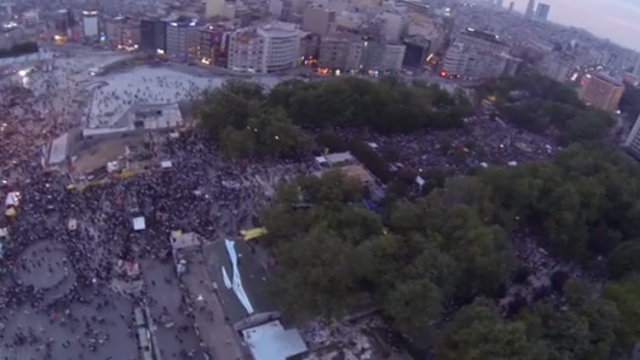

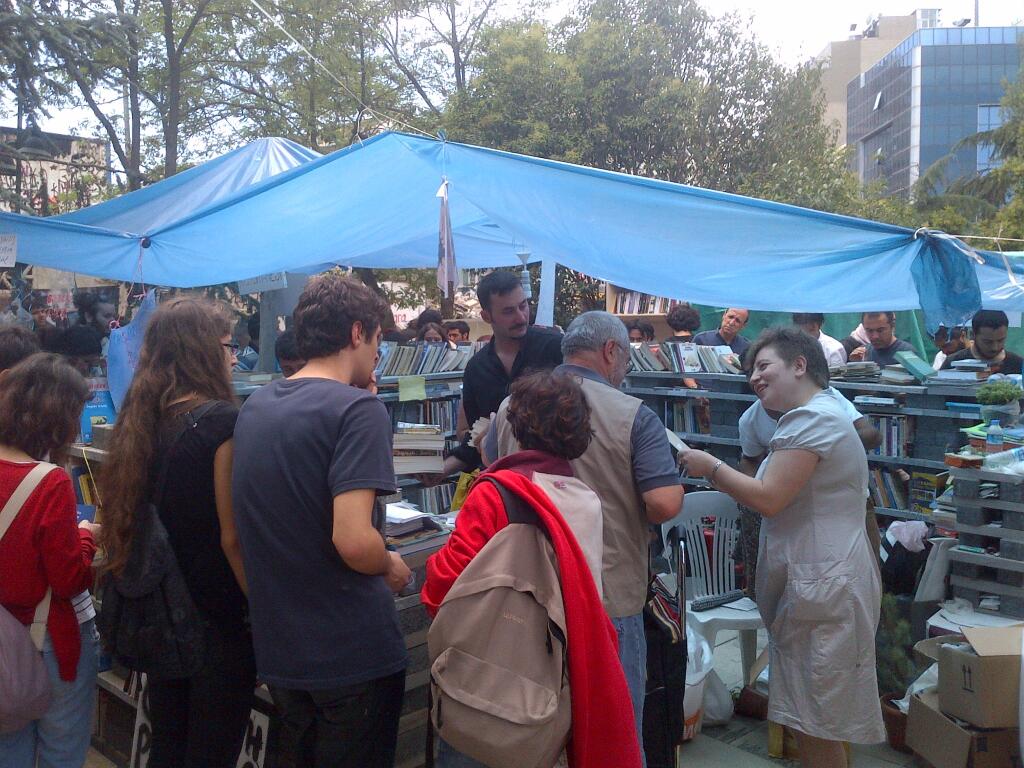



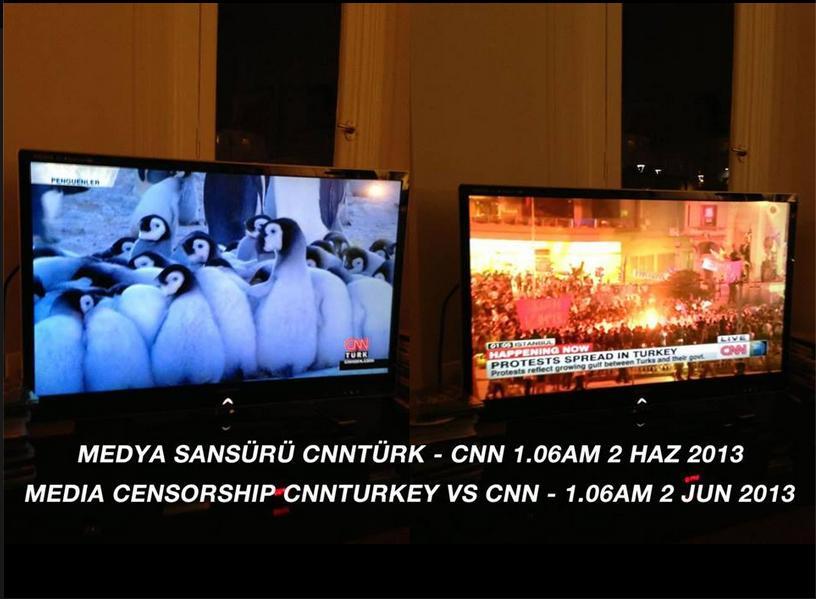


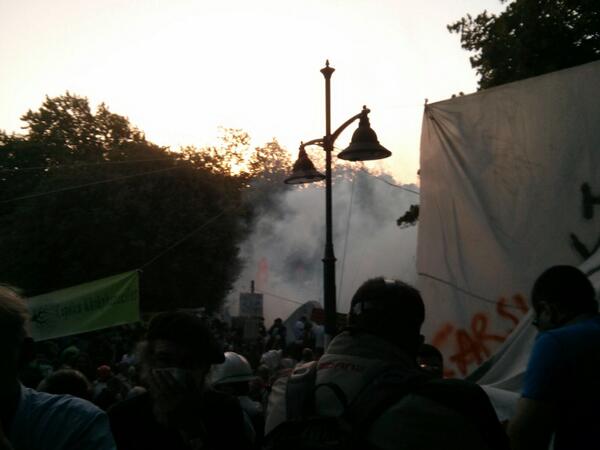




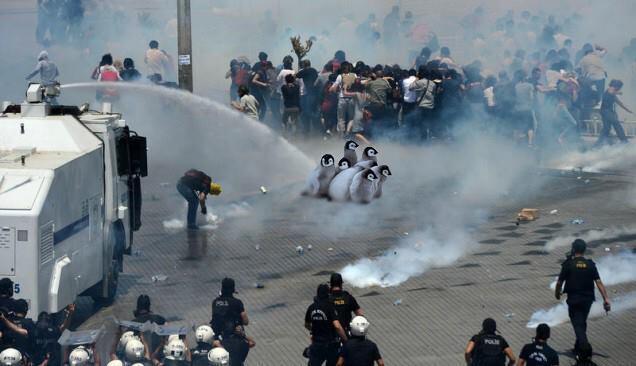


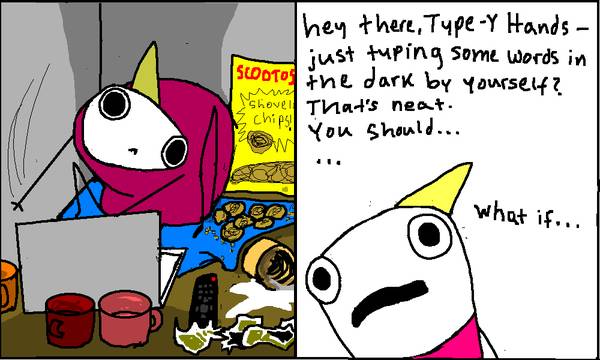
 Lisa Wade of Sociological Images posted her comments on a recent Pew survey that explains why the "the majority of Americans are in favor of extending marriage to same-sex couples."
Lisa Wade of Sociological Images posted her comments on a recent Pew survey that explains why the "the majority of Americans are in favor of extending marriage to same-sex couples." 



